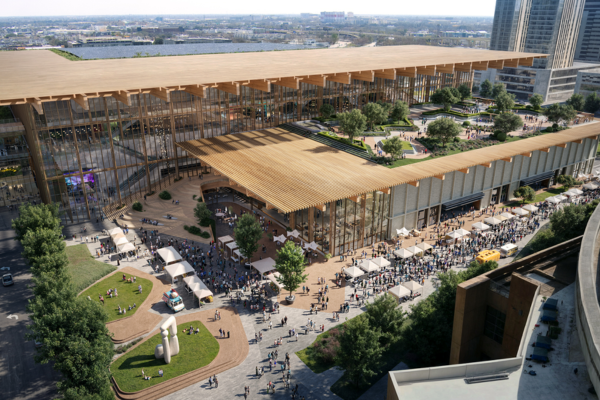6 Houston Cycling Trails You Need to Ride
Published Oct 18, 2022 by Megan Broussard
The City of Houston has a 345-mile interconnected bikeway network that includes high quality cycling routes for all experience levels. These trails offer beautiful city views like the skyline at sunset as well as plenty of lush greenery and natural landscapes. Below is a list of our favorite trails to explore in the greater Houston area.
Bear Creek Pioneers Park
Why we recommend: There is so much to do here in addition to biking, such as a visit to the wildlife habitat and aviary or a round of tennis. Come for a bike ride and stay for a relaxing picnic, walk around the pond or wildlife encounter. Learn more
Brazos Bend State Park
Why we recommend: This trail takes you through a forest and circles the lakes located within the park. A great escape away from the city and into nature. Learn more
Buffalo Bayou
Why we recommend: This trail spans 15 miles and is fully paved. Many sections are shaded, and it is home to our cherished bat colony under the Waugh Drive Bridge. Learn more
Memorial Park
Why we recommend: Not only is this a local favorite due to the various biking trail options, but it also has two spots within the park to rent bikes through Houston B-cycle, the city’s non-profit bike share program. Learn more
White Oak Bayou Greenway
Why we recommend: This trail includes over 15 miles of paths and connects with the Heights Hike and Bike Trail, giving you access to travel upwards to a different part of the city. You can easily start your day here and spend it taking in all the sights across town. Learn more
Brays Bayou Green Trail
Why we recommend: This 33-mile path is wide, paved and takes you on a tour through southwest Houston along the breezy bayou. Learn more
These are just a few of our favorite options, but Houston's network to include at least 500 miles of trails and bike lanes by 2025. Bayou Greenways is one initiative that will incorporate 150 miles of trails across 3,000 acres of park space. These additions will make biking and hiking even more premium in Houston, further enhancing Houston as a top place to live, work and play.
Learn more about living in Houston.
 The Houston Report
The Houston Report



















